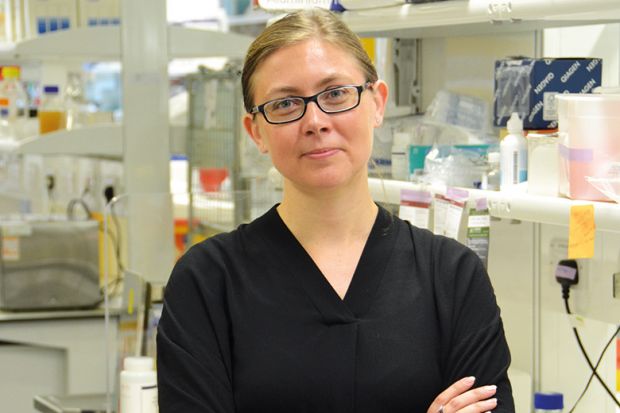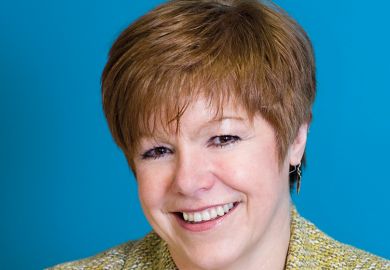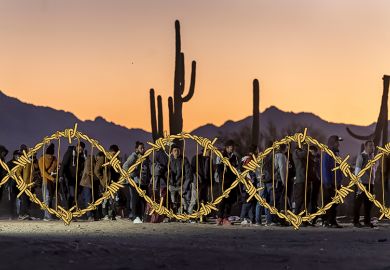Cristina Lo Celso is reader in stem cell biology at Imperial College London. She studied biotechnology in medicine at the University of Turin, in Italy, and went on to a PhD in biochemistry at UCL. While working at Harvard University, she made an important breakthrough in microscopy techniques, although more recently she has focused on how leukaemia cells move around the body, and why the disease destroys bone-making cells. She recently became the first woman to win the prestigious Foulkes Foundation Medal, awarded biennially by the Academy of Medical Sciences to a rising star in biomedical research.
Where and when were you born?
Turin, Italy, in 1978.
How has this shaped who you are?
The region of Piedmont is known for its work ethic and for having the strength to plan and carry out ambitious projects, since the unification of Italy started here, but also the ability to enjoy small things, especially hot chocolate.
Tell us about the influence of your Sicilian grandfather.
He was born in 1912 and was a surgeon. I grew up with his stories of performing challenging operations in extreme conditions in the Russian winter during the Second World War and of running a hospital in a small city in Sicily, making the most of the medical supplies left by the Allied forces as they freed Italy. I guess that knowledge taught me to be determined and strong, but also to work for the greater good.
What does it mean for you to be the first woman to win a Foulkes Foundation Medal?
It is a great honour and I hope that it will contribute to empowering and inspiring young women to study and work in science, technology, engineering and mathematics disciplines.
What was your most memorable moment at university?
It was just before picking my degree, actually. At a meeting with the director of what became my course, he put it simply: “If you study medicine, you will largely test and sell the products of research to patients; if you study biotechnology, you will be behind the medical advances of the future.” I immediately gave up my plans to study medicine, and here I am.
What made you shift your attention from microscopy to leukaemia?
My long-standing fascination with stem cells brought me to my postdoctoral work, where we developed intravital microscopy of blood stem cells reaching their niches in the bone marrow. This led to the question of whether leukaemia cells compete for the same niches and how they overtake the healthy ones. Addressing these questions showed me how very basic research can have a real impact.
What are the main misconceptions about your field of study?
There is a bit of disappointment among the general public about the fact that sequencing the human genome has not cured cancer yet. It is difficult to convey that the research that I do now is not going to save my neighbour’s life, however, if we look at the change in overall survival rates from cancer over the past 20 years, that is amazing.
What have you gained from working in different countries?
An understanding of how research and life in general can be approached in different ways. This helps me to keep an open mind when problem-solving and to embrace and appreciate the power of diversity in all aspects of work and life.
What needs to be done to increase the representation of women in science?
I think that mentorship is incredibly important as well as diverse, supportive and inclusive environments. Women in science are still a minority, especially in some disciplines and past the PhD and postdoc stage, and I am very grateful for everyone who is supportive of women in science. We are still too few to single-handedly change the culture and, besides, the aim is to develop a culture inclusive and supportive of everyone, not one where women help women and men help men.
What has changed most in higher education in the past 10 years?
Students are becoming more and more the protagonists of their degrees, and rightly so, and they are developing early on all those “soft skills” that were never directly taught years ago. With the internet storing infinite knowledge, finding information is becoming more critical than actually knowing it. However, I hope that we still communicate the importance of having knowledge in order to be able to progress.
If you were universities minister for a day, what policy would you introduce?
I would very much soften the current push towards immediate translation and [communicating the] impact of our research. If it wasn’t for my interest in the fundamentals of blood stem cell biology, we would not have discovered that already existing drugs may be repurposed for the benefit of leukaemia patients. What we call basic research is critical to sustain the future of translational and applied science.
What advice do you give to your students?
Follow your heart. Science is hard work, like life in general. Pick the degree, the PhD and the job that make you feel the most enthusiastic. Also, I ask my trainees to reflect on their achievements and strengths. As scientists, we are problem-solvers and we naturally focus on what we are missing. This can be tiring if we don’t balance it with celebrating everything that we already have.
If you weren’t an academic, what do you think you’d be doing?
I would probably be some kind of visual artist. Who knows? Maybe I would still be using microscopy but purely with the aim of communicating the inner beauty of the world around us.
What would improve your working week?
A less crowded commute and a shorter queue to get showered after I run for the second half of my journey.
What would you like to be remembered for?
Having made discoveries that advanced knowledge and contributed to improving human health not only through improved therapies but also through effectively preventing disease.
matthew.reisz@timeshighereducation.com
Appointments
Gill Valentine has been confirmed as the University of Sheffield’s provost and deputy vice-chancellor. Professor Valentine, who has been interim provost since September, was previously head of the Faculty of Social Sciences. She joined Sheffield in 2012 from the University of Leeds, where she was head of its geography school and director of the Leeds Social Science Institute. The former BBC Wales journalist had previously worked as a lecturer, senior lecturer and professor at Sheffield between 1994 and 2004. Sir Keith Burnett, the university’s vice-chancellor, said that Professor Valentine would be a “true asset to the university in this role” as her “calm professionalism is matched by purpose and a deep commitment to the way that teaching and research can transform the lives of people locally and around the world”.
Peter Childs has been named as the next director of the Consortium for Research Excellence, Support and Training, the GuildHE-run association that provides support and services for small and specialist institutions in the UK seeking to build their research capacities. Professor Childs, an expert in 20th-century literature, is pro vice-chancellor for research and scholarship at Newman University and takes over the post from Andy Dixon, director of research at the University of Chichester. Gordon McKenzie, chief executive of GuildHE, said that Crest was “an invaluable network for our members” and that Professor Childs’ “perspectives and commitment will help us to continue to develop the excellent services and support it provides”.
Simon Stephens has been appointed Manchester Metropolitan University’s first professor of scriptwriting. The playwright is best known for his stage adaptation of Mark Haddon’s novel The Curious Incident of the Dog in the Night-Time, for which he won the 2015 Tony Award for Best Play.
Becky Allen has been named as director of the UCL Institute of Education’s new Centre for Education Improvement Science.
POSTSCRIPT:
Print headline: HE & me
Register to continue
Why register?
- Registration is free and only takes a moment
- Once registered, you can read 3 articles a month
- Sign up for our newsletter
Subscribe
Or subscribe for unlimited access to:
- Unlimited access to news, views, insights & reviews
- Digital editions
- Digital access to THE’s university and college rankings analysis
Already registered or a current subscriber?








